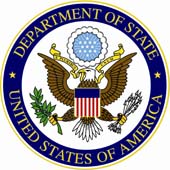Human trafficking still a problem in Georgia
By Ana Robakidze
Monday, June 23


Based on the extent of the governments’ efforts to reach compliance with the Trafficking Victims Protection Act’s (TVPA) minimum standards for the elimination of human trafficking, the State Department places each country into one of four tiers. Georgia remains in tier II, as a country whose government does not fully comply with the TVPA’s minimum standards, but is making significant efforts to bring itself into compliance with those standards.
“Georgia’s anti-trafficking law enforcement efforts remain low, but improved compared with the previous reporting period: the five convictions under Article 143 are an improvement compared with none in 2012 and one conviction in 2010, but still are lower than previous years. Some experts cited a decline in political will since 2010, although serious efforts have been made to update trafficking statutes to address changes in trafficking techniques.” the report states.
According to the report, women and girls from Georgia are subjected to sex trafficking within the country, as well as in Turkey, and to a lesser extent, the United Arab Emirates and Russia. Women from Azerbaijan, Uzbekistan, Kyrgyzstan, and other countries are subjected to forced prostitution in Georgia’s commercial sex trade in the tourist areas of Batumi and the Gonio area in the Adjara province.
The State Department recommends that the Georgian government to intensify its awareness-raising campaigns about the existence of human trafficking, legal recourse, and available protection services, to create a functioning Labor Inspectorate for the identification of cases of labor trafficking, to employ more effective, proactive methods to detect and identify potential trafficking victims among vulnerable populations and to ensure children in prostitution are properly identified as trafficking victims and children who are subjected to forced begging and vulnerable to commercial sexual exploitation are not inadvertently criminalized or punished for crimes committed as a direct result of their being trafficked.
The U.S fears that the Georgian government might lack the political will to combat trafficking and calls on the authorities to focus on the prosecution of those involved in human trafficking and on identifying and protecting the victims, especially of children subjected to forced begging, and women and girls subjected to sex trafficking.
